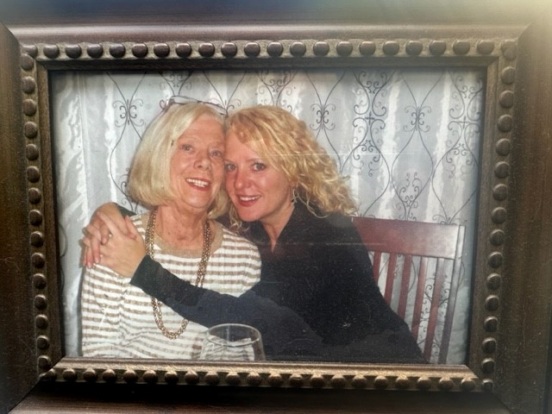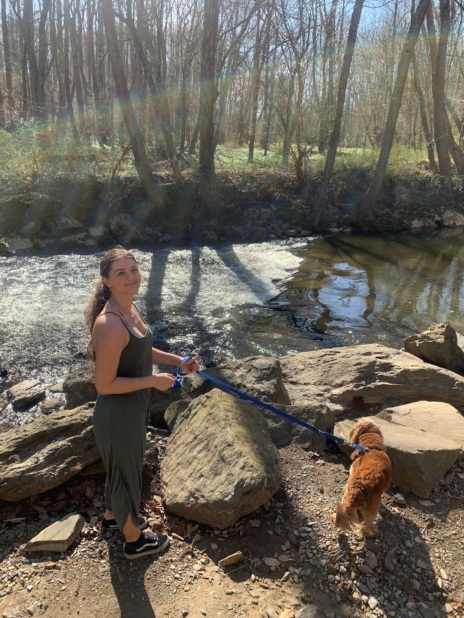Care Planning, Caregiving, COVID, Needs Navigation, Palliative Care

Maddie Eggen, NPAF's spring intern, writes her tips as to why everyone - including young adults - should have a care plan.
As part of the Be a Hero, Make a Plan campaign, we are capturing perspectives that get to the essence of why care planning is important. To learn more about care planning, download our care planning guide.
One of the biggest blessings in my life is that my family and I have always been in relatively good health. Sure, there was the time I broke my leg in Pre-K, or the unusual, yet persistent, case of whooping cough I developed in elementary school, but aside from the odd scratch or sniffle, I’ve never been too preoccupied with my own health or that of my healthy family.
This all changed with the COVID-19 pandemic. Although my dad’s asthma is extremely manageable and rarely registers as a second thought, it became nothing short of terrifying once the world fell victim to a respiratory virus. It didn’t help that the dining room table, where I spent hours glued to online classes, was just within earshot of my mom’s office. As a health reporter, most of her workdays could be summarized by “this is our worst nightmare.” Losing my junior and senior year to the pandemic was hard enough, but spending hours battered by news stories about healthy young adults unexpectedly dying or speculations over the chronic, long-term effects COVID, is enough to wear away at anyone’s morale.
Losing my junior and senior year to the pandemic was hard enough, but spending hours battered by news stories about healthy young adults unexpectedly dying or speculations over the chronic, long-term effects of COVID, is enough to wear away at anyone’s morale.
That’s why this spring, when I began my internship at National Patient Advocate Foundation, their April campaign, “Be A Hero Make A Plan,” was particularly interesting. For context, I’m a huge animal lover – a room filled with terrariums, tolerates four tightly-wound dogs, animal lover. Meaning that if I contracted COVID, my pets would fall to the wayside. Even before the pandemic, my twice-a-day Metro commute to and from school left me predisposed to the recurring nasty winter cold, and a care plan, even if simple, would be a great resource for me.
With all that being said, here are a few care planning tips for a young adult, from a young adult!
As any young adult or teen knows, our lives are constantly changing. When creating your care plan, think about where you might be a year or two from now, and health concerns associated with those changes. For example, I’m headed off to college four hours away this fall, meaning my care plan should consider my health both at home and at school. Identifying “backup people” and listing your health care providers are important elements in a care plan. Making sure your plan is accessible to your backup person/people and storing it in multiple places, such as your parents’ home, your school, etc. is important. Other examples of “thinking ahead” are, if you’re nearing 25, preparing to go on your own health care plan.
When hearing the term “care plan” and it’s associated words (caregiver, etc.), it’s common to assume that care plans are primarily for people with chronic conditions and should mainly be established as a preventative guide in case you happen to develop a chronic condition. However, there are so many more things a care plan can be used for: minor colds/illness, stomach flu, mental health situations, a broken bone, and more. Being young and healthy doesn’t make you immune to a persistent bug or a sudden injury, and whether your responsibilities include animal, plant or childcare, having a backup plan for even the most minor scenarios only helps you.
With the wealth of technology and the Internet at our fingertips, there are an overwhelming number of quick and easy ways to get involved in campaigns such as this one. Follow NPAF’s social media accounts and join their Twitter discussions to spread awareness about care planning and share their resources, on your own platform. It takes almost no time out of your day and can greatly impact the lives of others. Furthermore, if you have parents, relatives, or anyone else you know who hasn’t yet made a care plan or needs to update their existing plan, walk them through it. For older people, the Internet may be harder for them to navigate, and your personal touch will make care planning that much easier for a demographic that really needs it.
Summing up these tips, I’ve learned that just like my senior year, classmates and I are planning for graduation, summer vacation, being college bound and beyond, it makes sense to also think about simple steps we can proactively take, to protect our health and well-being. Using NPAF’s step- by- step prep kit is a great place to start.
Maddie Eggen is an NPAF intern.
Care Planning, Caregiving, COVID, Needs Navigation, Palliative Care
Care Planning, Caregiving, Health Literacy, Trust
Care Planning, Health Literacy, Project Innovation
Care Planning, Caregiving, Health Literacy, Insurance, Needs Navigation, Trust



